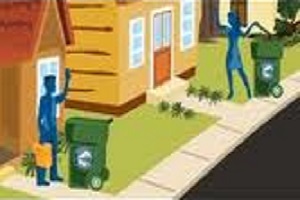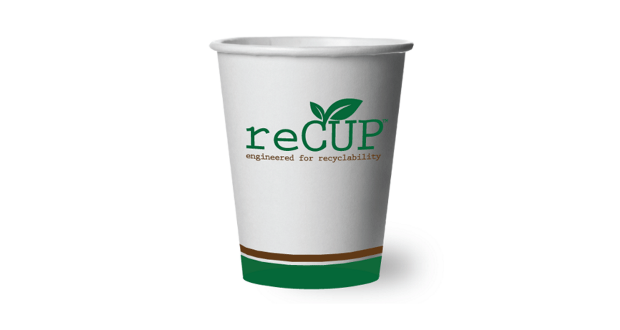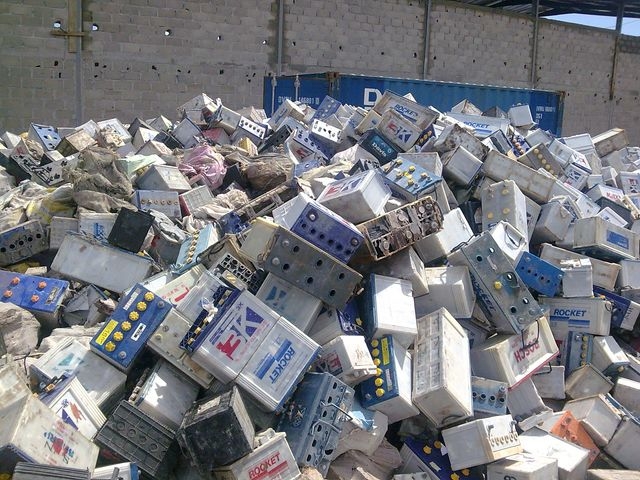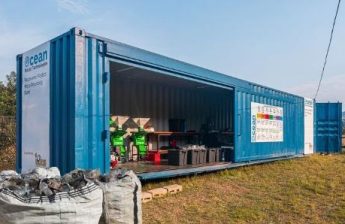 How great would it be if the next time you threw something out, you got something back? If you recycle, you do. The city of Lexington turns
How great would it be if the next time you threw something out, you got something back? If you recycle, you do. The city of Lexington turns
recycled goods into cash that helps pay for the costs of recycling and handling trash and other waste.
“The more everyone recycles, the more it’s beneficial for everyone involved,” including companies that use the recycled material, said Steve Feese, director of waste management for the Lexington-Fayette Urban County Government.
As Lexington moves further away from being a city that dumps everything into a landfill and toward being a zero-waste city, he said, “we’re trying to find beneficial reuses. We can recycle and compost the majority of our waste. So why should we continue to landfill, which is the most costly way to handle waste?”
Lexington was a founding member of the Bluegrass Regional Recycling Corp., a multicounty effort to aggregate and market reusable paper, plastics, metals, glass and other products.
Feese said some containers that are commonly used, such as milk cartons and freezer packaging, can’t be readily recycled.
“But hopefully, things will be made with beneficial reuse in mind more in the future,” Feese said.
In fiscal year 2011, the city handled 25,000 tons of recycled material and made $2.4 million by selling it to downstream processors. And the city saved an additional $700,000 in landfill fees.
All that stuff goes to businesses that refine it and sell it back to be reused.
So the next time you need a good reason to walk that cardboard toilet paper tube all the way from the bathroom to the recycle bin, think of this: Hundreds of Kentucky jobs depend on what you don’t throw away.
“A lot of industries in Kentucky rely upon recycled goods,” said Mark York, spokesman for the city’s division of environmental policy. “Recycling started out being good for the environment, but now it’s really good for the economy.”
According to statistics compiled by the city, here’s where your recycling goes:
Newspaper: The city and the Herald-Leader both send newspapers to SP Recycling in Dublin, Ga., which turns them back into more newsprint. (For a decade, the Herald-Leader has used SP’s 100 percent recycled newsprint but is switching to another kind that has only 13 percent because of problems with paper quality.) Last year, the city recycled 9,736 tons of newspapers. In 2010, the Herald-Leader directly recycled 1,282 tons of newsprint.
Glass: About a year ago, the city spent $3.5 million to upgrade its recycling processors to allow unsorted glass to be included in recycling bins. Suddenly, bars and restaurants found it much easier to recycle their empties, said Esther Moberly, a city recycling specialist. And last year the amount of glass recycled jumped to 2,746 tons. Most of it goes to Strategic Materials in Atlanta, where it’s ground up for abrasives and reflective materials such as highway striping.
Cans: Aluminum cans are sold to Anheuser-Busch, which ships them to Novelis in Berea. There, at the largest plant in the world dedicated to aluminum can recycling, Novelis melts them down into huge ingots that are shipped to other plants to be turned back into cans. The Berea plant employs about 110 people. Last year, the city sold 281 tons of cans. Something like one in six aluminum cans are processed in Kentucky at some point in their life cycle.
Novelis says it recycles about 40 billion cans worldwide annually. But Novelis products also find their way into much less plebeian settings: Novelis aluminum was selected for the iconic prow-shaped façade of the Titanic Belfast, a new tourist attraction being built in Belfast, Northern Ireland, where the doomed ship was originally constructed.
Plastic water and soda bottles: Known as PET, or polyethylene terephthalate, plastic, these bottles are sold to the Signode plant in Florence, which makes plastic strapping. The plant employs about 70 people. Last year, the city sent the company 731 tons of plastic. “They can’t get enough of the product,” York said.
Milk and juice jugs: HDPE, or high-density polyethylene, plastic goes to KW Plastics in Troy, Ala., which grinds it up and turns it into a range of plastic resins. Last year, Lexington sent them 250 tons of jugs.
One company that uses those recycled structural plastics is Play Mart, a Somerset company that makes children’s playground equipment. Play Mart, which employs about 30 people, says it is “recovering yesterday’s plastics for today’s play.”
According to Play Mart, 80 to 95 percent of their play structures are made of recycled materials. In Play Mart’s catalogs, each design includes how many milk jugs go into the new slides, swings, sandboxes, climbing walls and benches.
“We use about 1 million pounds of post-consumer/ post-industrial HDPE per year, which results in close to 7 million milk jugs not going into the landfill each year,” said founder Rebecca Beach. “About a third of those milk jugs come directly from the counties and cities, including Lexington residences using the Bluegrass Regional single-stream recycling program, and are processed by the Bluegrass Regional Recycling Corp., a non-profit organization in Richmond….
“We like to ‘close the loop’ on recycling whenever we have the opportunity — which means sourcing our suppliers as close to our factory as possible,” she said. “Lexington is only 70 miles from the factory in Somerset, so we are well within the 500-mile radius required to keep a small footprint for LEED points. Our other source for approximately a third of our HDPE is Mayfield Dairy in Tennessee, less than 200 miles also.”
Other plastic bottles: Lexington last year sold an additional 359 tons of HDPE mix, a variation which includes detergent and other colored plastic bottles.
Phone books: Last year, the city sold 163 tons to All Weather Insulation in Springfield, which employs 24 people; they are shredded and turned into paper that can be blown into walls and lower heating and cooling bills.
Corrugated cardboard: Last year, 4,838 tons of it was sold to an Indiana company that sends it to Temple-Inland in Maysville to make more cardboard and fiberboard.
Fiberboard: That’s the stuff cereal boxes, shoe boxes and hot pizza boxes are made of. About 1,226 tons of that were recycled last year by Continental Recycling in Tennessee and turned into tubes like the ones in paper towels and toilet paper.
That’s hardly even all that gets recycled: 1,787 tons of office paper, 473 tons of steel cans, 186 tons of scrap metal, 29 tons of scrap plastic, and 61 tons of plastic bags also went through Lexington’s recycling center.
The center doesn’t really take plastic bags, which are supposed to be recycled at grocery stores, but it gets so many it tries to find a good home for them, Moberly said.
“When (manufacturers) produce stuff … they don’t think of what’s going to happen at the end of its life,” Moberly said.
More and more companies are looking at the end as just another beginning.
Source : www.kentucky.com







